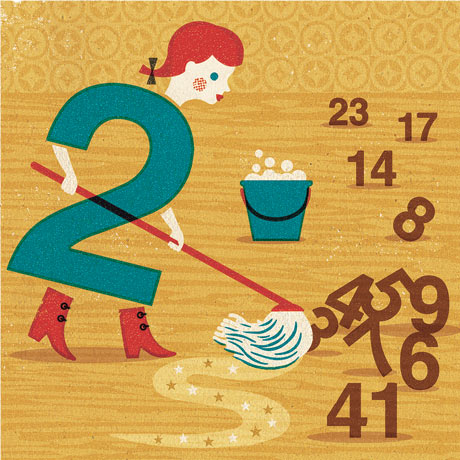
An economist walks into a bar. This is a true story; it's 2002, the bar is the Lava Lounge in LA, and the economist is an academic named Glen Whitman. He gets chatting to a fellow patron and mentions his line of work. "So," asks the stranger, "what are the Two Things about economics?" "Huh?" Whitman replies, confused. "You know, the Two Things. For every subject, there are only two things you need to know. Everything else is the application of those two things, or just not important." Whitman thinks, then replies: "One: incentives matter. Two: there's no such thing as a free lunch." Which is arguably a pretty good summation of the whole of economics.
"Ever since that evening," Whitman wrote later, "I've been playing the Two Things game. Whenever I meet someone who belongs to a different profession [or] knows something about a subject I'm unfamiliar with, I pose the Two Things question." When he blogged about it, scores of people contributed their own, which you can read at his website. But Whitman hasn't updated it for ages, because he's busy with a new career as a TV writer. The Two Things about TV writing, he told me recently, are, "Character, character, character" and, "Nobody cares about character if the plot makes no sense".
People like the Two Things exercise so much, he believes, because it forces them to extricate themselves from the weeds of detail and see the terrain of their own expertise afresh. The question gets you back to basics; contributions to Whitman's site include the Two Things about stock trading – "Buy low, sell high" – and the Two Things about theatre: "Don't forget your lines" and, "Don't run into the set." It also pinpoints the contradictions at the core of many professions. One of Whitman's favourites is the Two Things about medicine: First, "Do no harm"; second, "To do any good, you must risk doing harm." I also liked the Two Things about public relations: "Perception is reality" and, "Perception is rarely reality." The "two-ness" is crucial, Whitman argues. Three things wouldn't demand such disciplined thinking; one thing wouldn't give a truthful picture. As Einstein put it, "Everything should be kept as simple as possible, but no simpler."
Medicine can't literally be boiled down to two things, of course, but in other areas two things may be close to all you need. Having passed a driving test, what more do you really require beyond, "Don't hit anything" and, "Don't let anything hit you"? Entire industries of consultants exist to make things seem more complex than they are, thus creating a market for themselves. But how many books of parenting advice, for example, are rendered useless by the Two Things about parenting, as suggested by one of Whitman's readers: "There's no such thing as too much affection" and (to paraphrase slightly), "It's not what you say, it's what you do"? About a third of the self-help books that cross my desk could be distilled to two things: first, if you can tolerate a little discomfort, you can achieve almost any goal; and second, it's amazing the lengths we'll go to to avoid discomfort. And I can testify to the truth of another in Whitman's collection, the Two Things about journalism: "There's no such thing as objectivity" and, "The end of the story is based on your deadline", which is why this week's column ends… now. oliver.burkeman@theguardian.com; twitter.com/oliverburkeman

